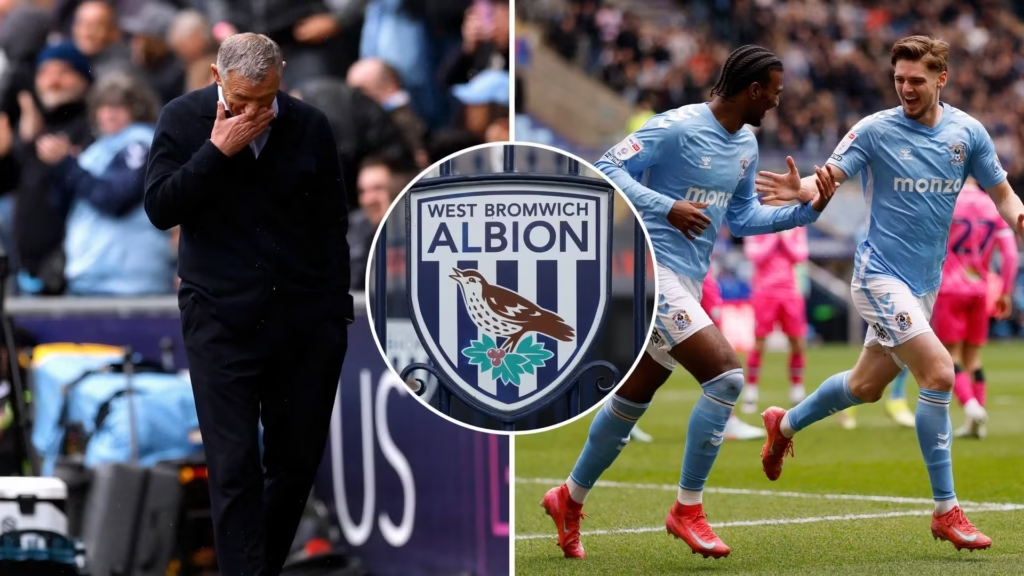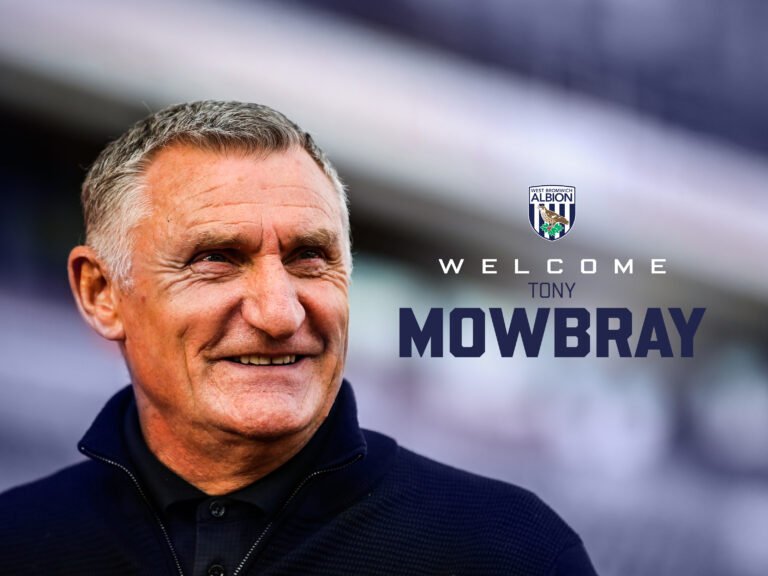A Leader Who Commands Respect Quietly
In the world of football, not every influential figure needs to be boisterous or headline-grabbing. Some lead through calmness, intelligence, and unwavering resilience—Tony Mowbray is one of those rare leaders. From his days as a no-nonsense defender to his evolution into a thoughtful manager known for tactical acumen and player development, Mowbray has left an indelible mark on British football. His journey is one of perseverance, professional integrity, and a deep love for the beautiful game.
Despite not always being in the limelight, Tony Mowbray’s name resonates with those who appreciate the inner workings of football—the tactics, the values, and the long-term vision that creates not just winning teams but enduring cultures.
Early Life and Playing Career: A Humble Beginning
Roots in Middlesbrough
Born on November 22, 1963, in Saltburn-by-the-Sea, North Yorkshire, Tony Mowbray grew up with football coursing through his veins. Raised in a working-class family, he joined Middlesbrough FC’s youth setup as a teenager. His natural leadership and composed defending quickly caught the attention of coaches and fans alike.
Mowbray made his senior debut for Middlesbrough in 1982, and it wasn’t long before he was named club captain—a role he would hold with distinction. Known for his aerial ability, intelligent positioning, and calm demeanor, Mowbray became a fan favorite and a symbol of resilience during difficult financial times for the club.
Leadership in Crisis
During the mid-1980s, Middlesbrough faced bankruptcy and near extinction. In these dark times, Mowbray’s loyalty and leadership stood out. He famously led the team out at Victoria Park in 1986 after the club had been locked out of Ayresome Park due to financial collapse. Under Bruce Rioch and with Mowbray’s guidance on the pitch, the club staged a remarkable recovery and climbed back up the leagues.
Celtic and the Next Chapter
After nearly a decade with Middlesbrough, Mowbray moved to Celtic FC in 1991. His time in Glasgow was tragically marred by the passing of his wife, Bernadette, to breast cancer in 1995. This period was a defining moment in Mowbray’s life, and he earned enormous respect for the grace with which he handled personal grief while continuing his career.
He concluded his playing career with Ipswich Town, where he continued to exhibit his trademark professionalism and tactical awareness on the field.
Transition into Management: A Tactical Thinker Emerges
West Bromwich Albion – A Promising Start
Mowbray began his managerial career in Scotland with Hibernian, where he quickly developed a reputation for playing attacking, attractive football. His success north of the border earned him a move to West Bromwich Albion in 2006.
At West Brom, Mowbray’s tactical philosophy blossomed. He emphasized ball possession, passing football, and player development—an approach that stood in contrast to the physicality often associated with the English lower leagues. In the 2007–08 season, he led the club to the Championship title and promotion to the Premier League.
Despite being relegated the following season, the quality of football and the identity he instilled were widely praised. Mowbray demonstrated that style and substance could coexist, even in a results-driven environment.
Celtic Return – A Difficult Homecoming
In 2009, Mowbray returned to Celtic as manager, a move met with high expectations. Unfortunately, this spell proved challenging. His ambitious attacking style left the team vulnerable defensively, and inconsistent results led to his departure after less than a season.
Although the Celtic chapter was a setback, it was a testament to Mowbray’s consistency in footballing values. He refused to compromise on his principles, even when the stakes were high.
Rebuilding and Reinventing: Middlesbrough, Coventry, and Blackburn

Returning to Middlesbrough
Mowbray returned to manage Middlesbrough in 2010, taking over a side struggling in the Championship. Under his guidance, the team became more organized and defensively stable. His knowledge of the club’s culture and the local community enabled him to connect with fans and players on a deeper level.
He wasn’t able to secure promotion back to the Premier League, but he did lay the groundwork for future success by nurturing young talents and emphasizing a balanced playing style.
Coventry City – Stability Amidst Chaos
In 2015, Mowbray joined Coventry City, a club in turmoil due to off-field issues. Once again, he stepped into a difficult environment and tried to instill a footballing identity based on possession and youth development.
Although results were mixed, Mowbray remained a respected figure, particularly for his work with younger players and his honest communication with supporters.
Blackburn Rovers – A Legacy of Progress
Perhaps one of Mowbray’s most defining managerial roles came at Blackburn Rovers, where he took over in 2017. The club had just been relegated to League One, and morale was low. Within a season, Mowbray led them to promotion back to the Championship.
Over the following years, he established Rovers as a competitive Championship side. His tenure was marked by smart signings, consistent improvement, and a long-term vision—rare in modern football. He was instrumental in the development of players like Adam Armstrong, Ben Brereton Díaz, and Joe Rothwell.
Despite eventually parting ways with the club, his legacy at Blackburn is undeniable: stability, youth development, and respect both on and off the pitch.
A Manager with a Moral Compass
Tony Mowbray is not just known for tactics; he is revered for his character. Whether dealing with personal loss, financial crises at clubs, or fan criticism, Mowbray has always maintained composure, honesty, and humility. He treats players with respect and has often been described as a “father figure” by those who have worked under him.
He rarely courts media attention but has earned widespread admiration from fans, pundits, and fellow managers. In an era where flashiness often overshadows substance, Mowbray represents integrity and thoughtful leadership.
The Philosophy of Tony Mowbray: More Than Just Tactics
Football with a Purpose
Mowbray’s teams are known for their ability to play attractive football with a tactical structure. He prefers formations that allow midfield dominance and creative expression, often employing a 4-2-3-1 or a 4-3-3 system. But more than formations, Mowbray instills a philosophy—be brave on the ball, play with intelligence, and always be aware of space.
His sessions emphasize movement, positioning, and decision-making under pressure. He is meticulous in preparation, often tailoring game plans to exploit weaknesses while staying true to his core footballing beliefs.
Player Development at the Heart
Mowbray has an eye for spotting and nurturing talent. Whether it’s helping a loanee find form or promoting academy prospects, he believes in giving young players chances. His long-term mindset often clashes with the short-termism of modern football, but it is also what makes him unique.
Health Struggles and Recent Years
In 2022, Mowbray took a brief step back from football due to personal and health-related matters involving his family. While he remained tight-lipped out of privacy, the footballing community rallied in support. He later took the reins at Sunderland AFC, where he once again impressed with his calm approach and strategic thinking.
In 2024, health concerns prompted another pause, with Mowbray announcing a temporary leave from management. His commitment to his family, health, and well-being serves as a reminder that behind the touchline persona is a man with priorities beyond the pitch.
Conclusion
Tony Mowbray may not be the loudest voice in football, but his influence speaks volumes. Through decades as a player and manager, he has shown that success isn’t always measured in trophies—sometimes, it’s about the people you inspire, the principles you uphold, and the quiet revolutions you lead.
In a game often driven by ego, Tony Mowbray remains a grounding force—calm, thoughtful, and fiercely principled. His legacy is already secure among those who value football as a craft and a community. For British football, Mowbray stands as a reminder that leadership doesn’t need to be loud to be powerful—it just needs to be real.
Read more: Gary Lineker: From Goal-Scoring Legend to Beloved Broadcaster and Social Commentator


